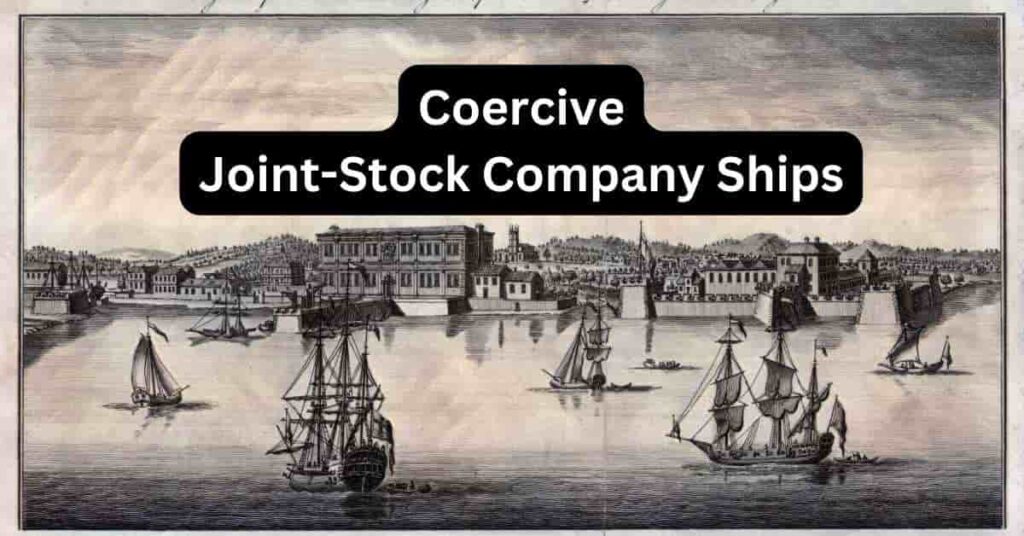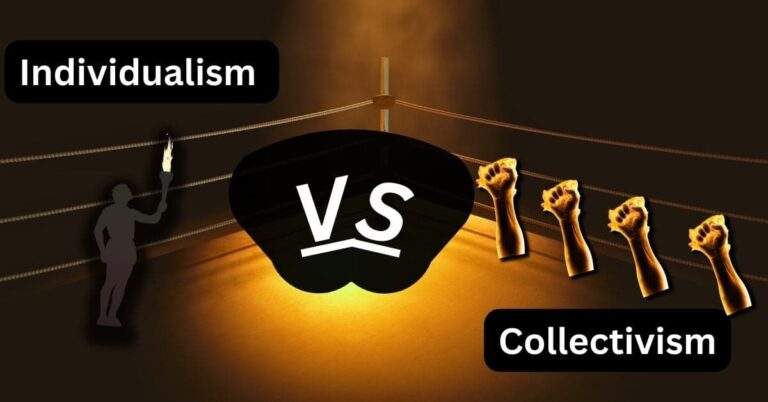Transcendentalism, cowboys, and self-reliance? What do they have in common? Ralph Waldo Emerson connects them. He is the 19th-century influencer who popularized these terms. Yes, history included influencers too.
Emerson’s essay Self-Reliance written in 1841 advanced the Transcendentalism and Individualism movements. People needed to trust their intuition and avoid conformity. “Trust Thyself” became the unofficial mantra. Social issues of slavery ruled political conversations that Emerson wanted to highlight.
I encourage you to read this essay before reading my analysis so I don’t cloud your judgment. You need to “Trust Thyself” too. You too have the capability for self-reliance.
Brief History of Emerson and Transcendentalism
To understand Emerson, you must comprehend why he wrote “Self-Reliance.” We must explore early American thought.
Firstly, Transcendentalism represented a movement that stressed the individual and nature as important. Emerson became the face of this unknown movement in American history.
What did life in 1840s America consist of? Did we have a distinctive culture?
Emerson wrote “Self-Reliance” 53 years after the states ratified the Constitution in 1788. Comparing us to other European nations, America existed as an infant.

You travel to Europe and see castles from the 12th or 13 centuries. We didn’t have that in 1840s America.
Most people think of nations such as Rome or Greece when they refer to rich cultures. Scholars use their architectural, political, and social histories as working examples. It helps to understand successes and failures.
Thus, America struggled to find its identity. We couldn’t separate ourselves from our European roots. In this context, Emerson frustrated wanted to spark change and inspire a movement. He sought to rid the U.S. of complacency.
Unfortunately, the evils of slavery continued. This institution didn’t align with the liberty principles mentioned in the Constitution. Change doesn’t happen unless people take an interest in improving society.
Abolitionists wanted to be that change.
But in Emerson’s view, they needed more self-reliance to stop looking at others as the spark.
In other words, they needed to find motivation to lead change. Instead, people waited around for someone to tell them what to do.
Imagine a shy child bored kicking around dirt on a playground. They’re waiting for other kids to ask them to join the kickball game. A confident, self-reliant kid will walk over and ask to play.
Moreover, Emerson’s “Self-Reliance” became a guide. You’re able to develop inspiration to assert your inner desires by understanding the concepts in this essay.
He connected the individual to individualism and the abolitionists to finding their motivations.
“Self-Reliance” helped to start the foundations of American culture. Other individualist subcultures such as expressive and rugged individualism resulted from his writings.
Social Conformity- The Enemy to the Individual
We will discuss conformity in totality including conformists and non-conformists.
The Conforming Individual
According to Emerson, society wanted the individual to conform. It made life easier for the masses.
But what happens when people conform?
They surrender their individuality. Emerson stated the following about conformity and society:
“Society is like a joint-stock company, in which the members agree… to surrender liberty and culture of the eater.”
Ralph Waldo Emerson- “Self-Reliance”
A joint-stock company is a collective of people who pool their money to invest in foreign trade. They formed large coercive armies against foreign populations to protect their interests.
Similarly, societal conformity is comparable to these armies. You surrender your inner desires through societal pressure.

Now, let’s think about your life in society for a minute.
Society provides:
- customs
- precedent
- acceptable behavior
Therefore, you look to society for guidance on daily life interactions.
If you disobey, consider society like the large joint-stock armies- your adversary. They’ll correct you with force.
To Emerson, conforming leads to sacrificing your self-reliance. You no longer find guidance to problems from within yourself.
Life’s answers originate elsewhere. You seek guidance from philosophers, experts, or respected close family.

Non-Conformity- The Solution
Emerson’s solution to mass conformity is non-conformity. As a result, the rebels and non-conformists will love this section.
What is that non-conformists seek? Are they trying to spark change? Or do they want to be different for the sake of it?
Emerson saw non-conformists as having total control of their minds. They do not succumb to pressure and forgo their values.
Don’t try to bully them to your views. They will proudly give you the middle finger.
For example, expressive and rugged individualists are non-conformists by nature.
The expressive individualists gained notoriety during the 1960s free-love hippie movements. They wanted sexual liberation from the traditional 1950s societal chastity.
Meanwhile, modern rugged individualists latched on to outlaw 1970s country. Outlaw musicians like Johnny Cash or Waylon Jennings are prime examples. These songs’ themes discussed prison, drinking, and rowdiness.
Emerson- a preacher- used the example of Jesus as a non-conformist. Jesus challenged ancient Roman religious doctrines.
Other more modern examples include:
- Founding Fathers
- Harriet Tubman
- Martin Luther King, Jr
Furthermore, children are the ultimate non-conformists. They will scream in public places without regard to appearance. Children don’t care what others think.
They aren’t conditioned to societal standards at young ages.
For instance, ask a bold 5-year-old for life advice. What kind of answers will you receive?
They’ll tell you with conviction that they’re right no matter the case. And their answers won’t be logical.
Also, they’ll repeat private family conversations in front of strangers. Children are natural rebels, unlike grown-ups.
Most adults are cautious. Upsetting someone or developing a bad reputation causes conflict among friends. They want to avoid embarrassment and tough conversations.
Emerson saw nonconformists as the answer to keeping society in check. They served as the catalyst for change when necessary.
However, non-conformity isn’t a license to go rogue. Society still needs law and order to survive. Emerson’s main thesis is to promote independent thought and self-reliance- not conform to groupthink.
“Trust Thyself…”
Ralph Waldo Emerson- “Self-Reliance”
Self-Reliance Needs:
• Emerson cared about his country. The United States needs to maintain self-reliance. LEARN MORE about to save liberty and promoting the reasons for a country’s independence.
• You need personal self-reliance. LEARN MORE about the philosophical reasons for individual self-reliance.
Who Cares About Intellectual Consistency
You like stability in your life.
It brings you calmness knowing there is predictability. And the key ingredient to this stable recipe is consistency.
Consistent people make your life easier. You want friends to follow through with their plans. That’s what makes a solid, steady friendship.
But Emerson’s views of consistency are different than your day-to-day life. In Self-Reliance, he discussed intellectual consistency- or the ideas you debate with others.
Let’s examine a simple change of opinion. Yes, the following concept is an intellectual idea in some social circles.
One day you eat chocolate chip cookies. Then, the next day you hate the look and smell of chocolate. Why the inconsistency in one day?
When sudden changes happen, your friends will give you weird looks. And they’ll bombard you with a bunch of questions regarding your rapid shift of opinion.
Emerson would be okay with this irregularity as long as you could justify it.
Did you experience a sudden allergic reaction to chocolate overnight? Does it cause you bad acne? Or are you trying to lose weight?
Here is a quote that explains Emerson’s view of self-reliance:
“A foolish consistency is the hobgoblin of little minds…”
Ralph Waldo Emerson- “Self-Reliance”
By respectfully expressing your views, you’re being self-reliant. You’re not relying on the societal mob to decide your best interests.
Also, Emerson noted that inconsistent people are often misunderstood like Jesus or Galileo.
People who change the world have big ideas. And marvelous thoughts come with backlash.
Jesus created the Christian movement. Scientific scholars credited Galileo with the invention of the Scientific Method.
As a result, local governments persecuted these individuals for their inconsistencies. They received harsh punishments.
What causes these people to be misunderstood?
They receive new information disproving what they thought previously true. Like the chocolate chip example above, you received new info about why you detest chocolate.
In modern society, people despise politicians for altering their views.
News organizations create a montage of clips of politicians contradicting themselves. One day they say they’re for this policy. Then a few weeks later, public money needs allotment for a different more important cause.
The news clips are funny, but they do show inconsistency in a politician’s political stance. Check your local news station to view these bloopers.
Self-reliance involves the exploration of the mind. And this will lead to inconsistencies as you develop your thoughts. Emerson acknowledged it because even his poetry is often misunderstood.
Who do you think is a genius that you misunderstand?
Self-Reliance Tips Related Articles:
• Have you wanted to develop your own self-reliance? LEARN MORE by exploring my great article on hints to develop personal self-reliance.
• Live in a family or a community without self-reliance? LEARN MORE hacks to assert community self-reliance.

Intuition- Nature’s Call to the Self
What’s that unnerving emotion when you know something isn’t right? You experience it deep in your bones to a slight tingle on your lip. It’s your “gut feeling”.
Emerson called it “intuition”. Both these terms mean the same thing.
For instance, you rely on your own instincts to warn of danger. Or you use them to allow yourself relaxation when the threat level is low.
In today’s culture, mothers developed the reputation of having the best intuition. They have an innate sense to protect their children from harm.
For example, never mess with a mother bear. Grizzly mother bears will guard her cubs at all costs if approached. They must be self-reliant to ward off danger fast.
Moreover, intuition involves a sense of knowing– or predicting outcomes before they happen. Many times, intuitive thoughts are involuntary and uncontrollable.
Your conscious thoughts are governable. But not intuition. You just know.
Do “momma bears” have to ask someone about their intentions? No, they don’t. They act without hesitation.
For you, think of situations where you’re able to predict an outcome 100% of the time. Whatever the circumstance, you’re relying on yourself and your senses.
That’s what self-reliance and individualism are all about.
But we lack one key component overlooked in intuition. Where does rationality take the place of “gut feelings”?
If you always relied on “gut feelings,” you would constantly walk around in fear. Life experience can guide you to rational intuition.
Let your past failures shape your future instincts.
Emerson’s goal with intuition is to simply state the obvious to people. By understanding it, you’re able to control those involuntary actions better.

Imitation: The Ordinary Person’s Way Out
We all imitate people we admire. Children replicate their parent’s actions. If you’re inspired by pictures online, you copy aspects of what you like.
However, Emerson championed originality over imitation in Self-Reliance. Novelty supports individuality and individualism. Newness excites people and stimulates creative juices.
Emerson discouraged imitation but promoted building upon existing ideas.
According to Emerson:
“Insist on yourself; never imitate.”
Ralph Waldo Emerson- “Self-Reliance”
Imitation is plagiarizing verbatim in the academic world. In our culture today, imitation, for instance, is mimicking a celebrity’s hairstyle.
As a result, your uniqueness disappears when you mirror the haircut. You fail to add your own personal flair to fit your individuality.
Expanding on existing ideas is perfectly acceptable.
Also, I have to be original on libertyembers.com. I analyze older pieces of literature and provide a fresh perspective. Translating them into modern lingo for you to understand is crucial to expanding liberty.
How do you think civilizations have advanced so far like the U.S.? The Founding Fathers built on ideas and mistakes of the past.
Self-reliance disappears with imitation. Because people become complacent about existing ideas to supply their future needs.
Personal growth ceases. You must strive for goals in a self-reliant world.
Complacency leads to laziness and thriving societies don’t prosper on lethargic populations. If you imitated everyone’s ideas verbatim, economies and modern luxuries stagnate.
I will close this section with a famous quote from Emerson that I referenced in this post’s opening:
“Trust thyself: every heart vibrates to that iron string. Accept the divine providence has found for you.”
Ralph Waldo Emerson- “Self-Reliance”
Stay true to your thoughts, ideas, and character. Never copy someone. Instead, examine what others accomplished and build up those ideas. You’ll improve yourself and society in the process.
Conclusion
Consider self-reliance next time you find yourself being overly dependent. Ralph Waldo Emerson and the Transcendentalists wanted you to find your place in this world via self-reliance.
Emerson- a prominent 19th-century intellectual revolutionary- grew tired of a populous bound by mediocrity.
His essay promoted his pillar values of non-conformity, human intuition, and no imitation.
Yet, he didn’t realize his one essay would spark change leading to a truly American culture.
Movements such as expressive and rugged individualism resulted from Self-Reliance. You see these individualists in modern America. They are the expressive hippies to the bearded guys promoting a self-reliant homestead lifestyle.
In the end, his essay is about a personal connection to your inner “authentic” self. He wanted you to improve yourself from which society benefitted too.
Do you partake in self-reliance in your daily life? Is instinct part of your decision-making process?
J. Liberty
Related Articles about the Individualists Movements:
• I have all your needs for discovering what expressive individualism is. LEARN MORE for how the “expressives” assert themselves in America.
• Self-reliance is the mantra of rugged individualists. LEARN MORE about an extended history of the “ruggeds”.
References:
Emerson, R. W., & Wulf, R. (1909). Self-Reliance (pp. 132-53). Caxton Society.
Galileo Galilei. (2021). Retrieved from New Mexico Musuem of Space History.
Photo Credits
Photo Credits:
© photos.com via canva.com
© nataliiazhekova via canva.com
© LaylaBird via canva.com
© theartist312 via canva.com
© VLukas via canva.com



